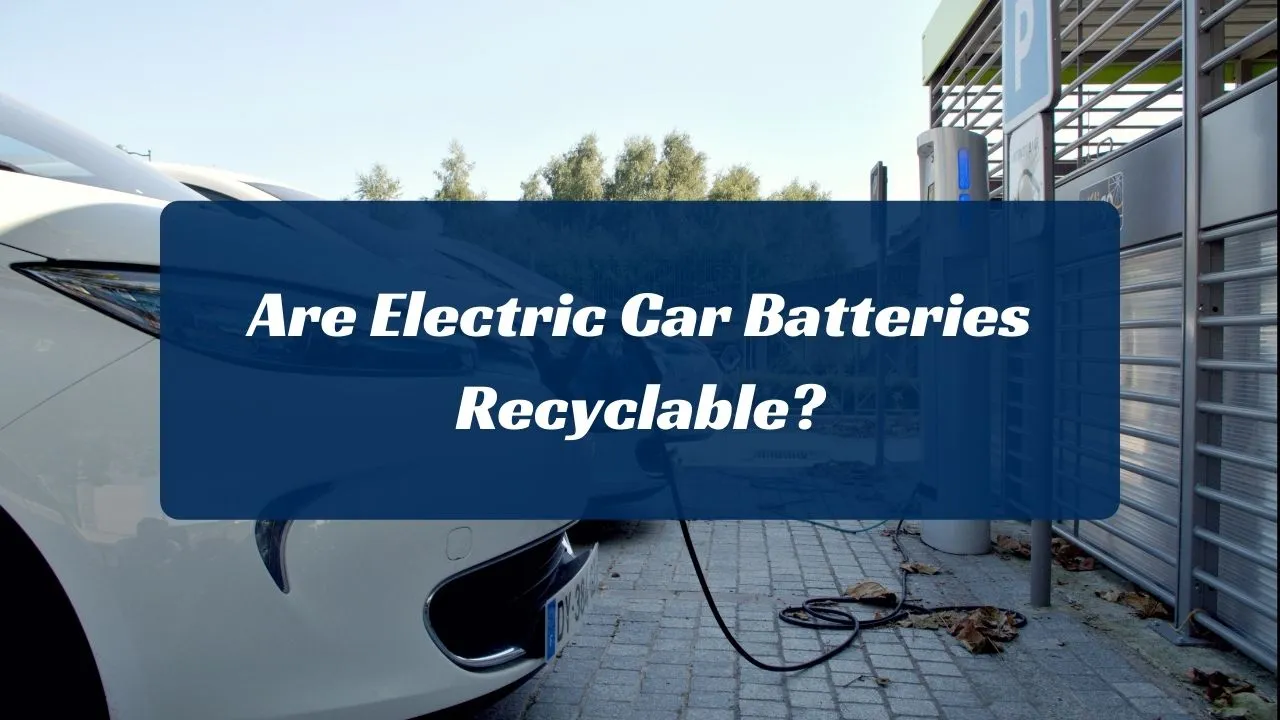The popularity of electric vehicles is increasing day by day. As we all know, batteries are used in electric vehicles to store energy. These batteries have a lifespan and must be replaced at the end of their life. This situation pushes electric vehicle owners to research whether batteries are recyclable.
Electric car batteries are recyclable, but most people don’t know that. In this blog post, we’ll discuss what recycling electric car batteries entails and how you can get involved. We’ll also explore why more people don’t recycle electric car batteries and what can we do to change that. Thanks for reading!
What Are Electric Car Batteries?
Electric car batteries are rechargeable batteries that are used to power electric cars. They are typically made up of lithium-ion cells and can be recharged by plugging them into an electrical outlet.
Electric car batteries have come a long way in the past few years. They are now much more affordable and can last for up to ten years. Most importantly, they are much more environment-friendly than traditional gasoline-powered cars.
If you are thinking about purchasing an electric car, it is important to consider the cost of the battery. Many electric car batteries need to be replaced after a few years, which can be costly. However, the cost of batteries is dropping all the time, so it is important to do your research before making a purchase.
How Are Electric Car Batteries Recycled?
Electric car batteries can be recycled by breaking them down into their component parts. The lead and acid are separated and the lead is melted down and reused. The acid is neutralized and the plastic is melted down and reused.
This process is much cleaner and more environment-friendly than creating new batteries from scratch. It also saves energy and reduces the amount of waste produced. Electric car batteries are an important part of the green transportation movement. By recycling them, we can help reduce our impact on the environment and move closer to a sustainable future.
The recycling process begins by removing the combustible material, such as plastics and insulation, with a gas-fired thermal oxidizer. Polluting particles created by the burning process are eliminated by the plant’s scrubber before being released into the atmosphere. This leaves the clean and naked cells with metal content.
The cells are then chopped into small pieces and heated until the metal liquefies. Non-metallic substances are burned off, leaving a black slag on top that a slag arm removes. The alloys settle according to weight and are skimmed off like cream from raw milk while still in liquid form.
The Benefits of Recycling Electric Car Batteries
Electric car batteries can be reused in several ways, which reduces pollution even further. Most importantly, recycling electric car batteries helps reduce toxic waste from old batteries that would otherwise have been disposed of in landfills or by incineration. Recycling also reduces the energy and resources needed to create new batteries, which helps further reduce carbon emissions.
If you own an electric car and would like more information on recycling options, contact your local scrapyard about what they accept for recycling. If you are thinking about buying or leasing an electric car.
How to Recycle Your Electric Car Battery
One of the benefits of owning an electric car is that it requires much less maintenance than a normal gasoline-powered vehicle. You’ll spend far less money on gas, little to no time in the shop getting repairs, and when it does come time for maintenance, you can feel good about recycling your old battery.
While it’s possible in some areas to take your battery back to the car dealer, most states require you to recycle it yourself.
When recycling your electric car battery, you’ll need:
– A 10 or 20 gauge copper wire (any length is fine)
– Compact fluorescent light (CFL) bulb
The Future of Electric Car Batteries and Recycling
Electric cars are more common now than they have been in the past. In 2017, electric cars accounted for 1.1% of new car sales in the United States and 0.5% of total world car sales. This rise in popularity is due to a combination of environmental protection laws and companies’ commitment to lower emissions. As electric cars become more popular, the battery recycling industry is also growing.
People can reduce pollution, save money on gas, and help preserve the environment. But what happens to the batteries in these cars when they no longer hold a charge? The majority of electric car batteries can be recycled to be repurposed into homes or other energy storage equipment. Don’t worry about what will happen to the electric vehicle’s battery. Recycling will be the inevitable end for them.
Electric cars are becoming more common and make it is clear that this will affect the battery recycling industry. This statement is balanced by mentioning that some environmental laws are encouraging people to buy new electric vehicles. Since electric cars are becoming more popular, so too is the battery recycling industry.
The majority of electric car batteries can be recycled to used for other homes or other energy storage equipment because their materials can be reused in new batteries. This statement may give readers the impression that not all batteries are actually recycled into new homes and other energy storage equipment because it is not common to reuse materials. Including this detail gives the impression that battery recycling is more complicated than just disassembling batteries and finding new ways for their components to be used.
